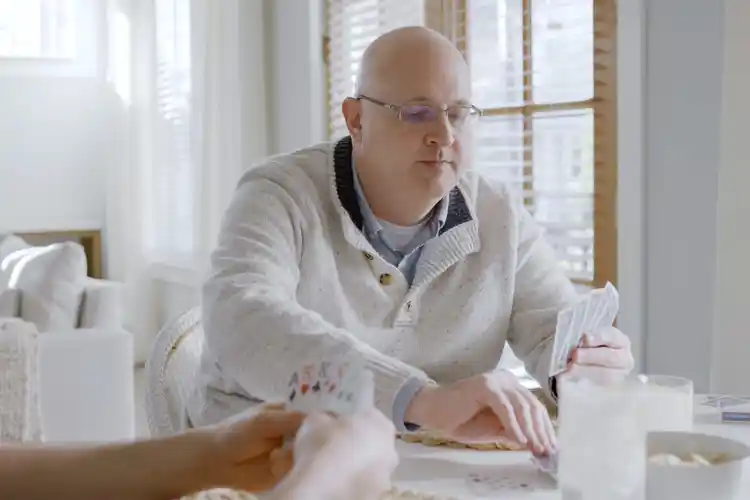Adjusting to Life With Psoriatic Disease

Hide Video Transcript
Video Transcript
EDDIE APPLEGATE
I had psoriasis on my face, across my forehead, across my nose and cheek. So it was very evident. It's a lot emotionally and mentally to take in. You've kind of felt seen more so than you want to be seen. It's this internal anxiety between pain and social anxiety, I would just not go out. I was not in a hurry to be sociable, make new friends. But you have to take care of yourself first. Mentally and emotionally, there's so much that you're missing out on because of social anxiety. And I think that the sooner we realize it and kind of admit it to ourselves, then we can reach out and find other people, have these same experiences. There's just a lot of information and a lot more support than you realize.
Of course, everyone's disease level is going to be different. Fatigue is always a part of any rheumatic disease. One that is often not talked about enough. To just get wiped out. It's not like tired after a long day, it's kind of you're whole soulless tired. It is tough for people to say no, you never want to feel like a bad friend, like you're blowing people off. But our bodies don't work like everybody else's bodies. And you have to realize that.
My body is telling you no. And I need to listen to my body. Sometimes, doing something that we don't feel like doing can lead to feeling even worse the next day. There are ways to adapt. The social gather, hang out, go out to eat. But listen to your body, learn to say no, and realize that it's nothing against you, it's nothing against your friends, it's just what you have to do because it's what your body is telling you.
It's just been within the past several years that I felt comfortable enough to say, yup, I've got this. You can't worry about what other people would think. The people that you are close to, the people who know you and do genuinely care for you, they'll make you feel better about yourself. Just the right people are going to make a big difference.
